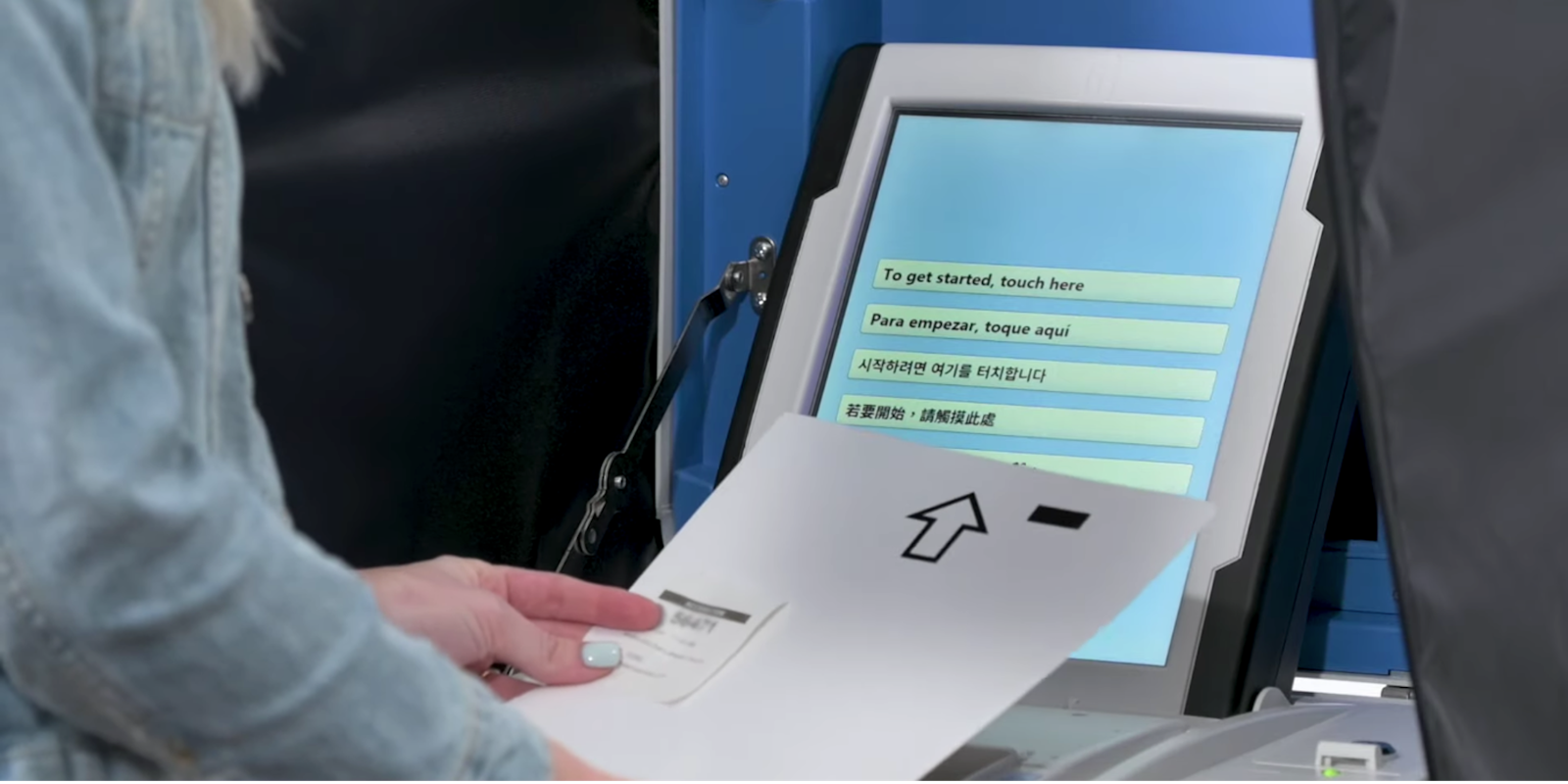
One Dumb Conspiracy is a weekly column that debunks the mostly wild conspiracy theories swirling around the web and runs on Mondays in the Daily Dot’s web_crawlr newsletter. If you want to get this column a day before we publish it, subscribe to web_crawlr, where you’ll get the daily scoop of internet culture delivered straight to your inbox.
Let us crawl the web for you. Subscribe to web_crawlr here.

Conspiracy theorists spent election day last week spreading debunked claims in yet another attempt to damage the legitimacy of U.S. elections.
Just as was seen during the 2020 presidential election, conservatives were quick to blame every minor error or suspected anomaly on a grand effort by Democrats to rig the midterms on Nov. 8.
Even conspiracy theories that had been debunked two years prior resurfaced once again, leading to widespread protest online from prominent right-wing figures.
But as usual, all the claims made were easily disproven. Here are some of the dumbest conspiracy theories seen on election day.
‘Rigging ballots live on TV’
Footage of an election worker marking ballots, which was aired as B-roll Fox News, was immediately cited as proof of rigging on election day.
In just one tweet, a clip of the video received well over 340,000 views before spreading to other social media platforms.
“Look at this. What is he marking?” the man filming the Fox segment from his phone can be heard saying. “What is he doing flipping through ballots?”
Yet the man being filmed at an election center in Dane County, Wisconsin, was not engaged in any wrongdoing. As noted by county clerk Scott McDonell, the election worker was merely initialing and circling the correct local election ward printed on the ballot.
“This process is required by law and is a routine part of the check and balance process,” McDonell said.
Sharpiegate 2.0
In 2020, Trump supporters falsely claimed that they were forced to use sharpies to fill out their ballots even though doing so would invalidate their votes. The faux scandal was quickly named “Sharpiegate.”
Despite the claim being roundly debunked by election officials at the time, the conspiracy theory appeared again last week in Illinois after one user tweeted that 89 voters had reported sharpies being handed out in a specific county.
Unsurprisingly, the claim spread like wildfire and was picked up by an assortment of far-right blogs notorious for spreading misinformation.
Soon after, the SBE, an independent state agency that supervises the administration of elections, tweeted that sharpies would not cancel out a voter’s ballot.
“If you’re given a felt-tip pen today while voting, don’t be concerned,” the Illinois SBE tweeted. “Many voting systems prefer them as a ballot marking device.”
Wi-Fi connections prove internet-connected voting machines
Many of the most popular conspiracy theories from 2020 involved claims that the election was rigged through a vast array of technological feats, whether vote-stealing satellites from Italy or voting machines under the control of the Chinese government.
The midterms were beset by similar conspiracy theories after voters began arguing that the presence of Wi-Fi signals at voting locations proved that the machines were connected to the internet.
“Be sure to check the wireless signal at your polling place—and if you can go back the next day to contrast and compare,” one user on Gab wrote.
Screenshots of Wi-Fi connections were soon uploaded all across social media with allegations that they belonged to voting machines.
But elections are often held at libraries and educational centers where Wi-Fi is commonplace. One specific connection titled “PollPad Wi-Fi Secure” was seen as especially suspicious.
The connection, however, merely refers to a device used by election workers to check in voters and confirm their voter registration and polling location.
Why it matters
Conspiracy theories could unfortunately have a permanent presence during future U.S. elections. Even when debunked, false claims surrounding the electoral process continue to resurface time and time again.
Fact-checking and properly investigating any such claims before spreading them online is paramount given the country’s hyper-connectivity.


